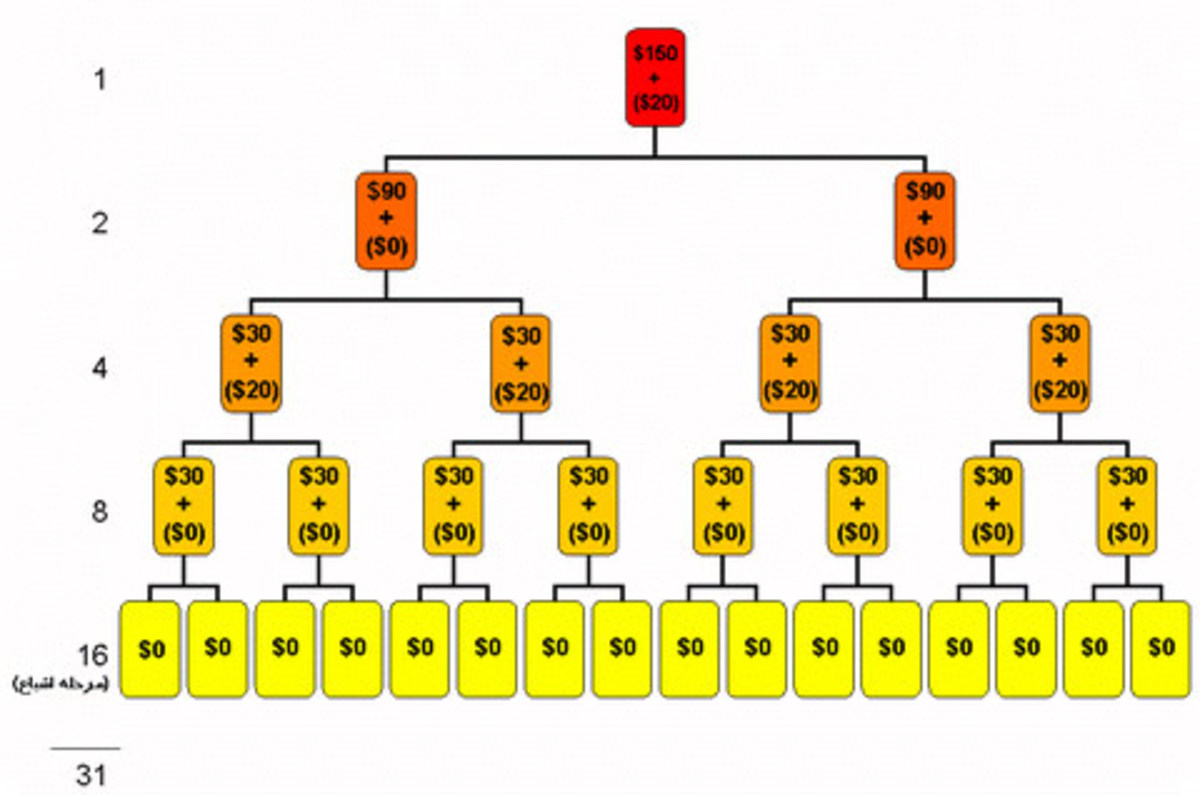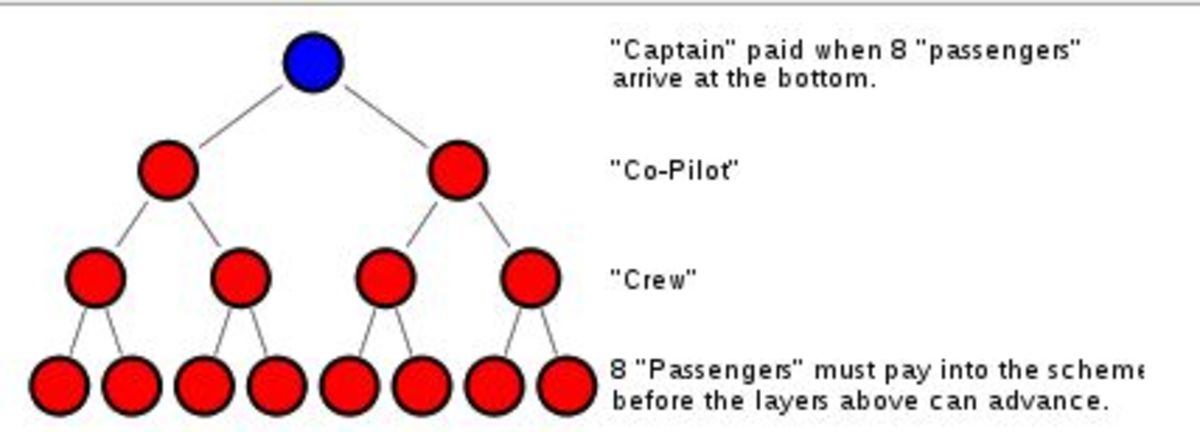How a Scam Works: distorting your gain, risk, and value perception with words makes you stupid, so be skeptical!
Three Things You ALWAYS Evaluate
Daniel Bernouli back in 1738 created an equation, which I will not cite here, since it's all in GREEK. However, here's the approximate version:
gain = risk * value
And you use this every day.
if cost < gain then go else stop
Economists call this "cost-benefit evaluation", you may just call it "common sense".
There are THREE variables in the decision process. If you mess any of them up, you will not make a valid decision.
Risk is of course, the odds of winning / gaining. It is what you get from the process. For a normal job, the risk is low, probability of winning is high, like 0.99 (your boss may be a crook) For the lottery, the risk is very high, probability of winning is low to nil.
Value is what you get from it. For a normal job, it'd be the bi-weekly salary check. For the lottery, it'd be the grand prize.
Cost can be actual cost in $$$, or work (man-hours) put in for a job, or cost of ticket for a lottery.
Your mind is constantly making judgments based on this little equation, but your mind makes mistakes by wrongly estimating the risk, the value, or the cost. Scammers are there to help you make even bigger mistakes.
To mess with you on risk, they tell you it's a "sure thing" when it's not, usually by withholding information (which is why most laws require a lot of disclosure) or by lying (partial or complete lie). They can also tell you it is legitimate when it is in fact illegal, thus disguising the risk.
To mess with you on value, they can promise you huge gains, when real gains are nowhere like that. They can make the so-called gains very difficult to redeem by going through 3rd parties, or by changing terms only AFTER you join.
To mes with you on cost, they can easily hide the true cost of the so-called opportunity, by not mentioning fees and such, by making the cost piece-meal, spread over period of time, only mention fees AFTER you join, and so on.
Let us discuss each of the ways a scam can mess with you by disguising each of the three variables.
Problems with Risk Assessment
Pseudo-MLM scams will recruit people and tell them it is VERY easy to make money... by recruiting even MORE people.
They don't tell you that it's a pyramid scheme. They don't tell you that recruiting people is difficult when people are doubtful. When you find out how difficult it is to recruit, they blame YOU. Somehow, you must be doing it wrong. The system cannot be wrong.
They won't tell you that you can be shut down by law or even arrested for promoting a pyramid scheme, even if you didn't start it. They may even tell you it's NOT a pyramid, even though they have described the pyramid scheme exactly, except they use fancy words like "forced matrix".
They will lie when challenged. Members of an international scam have been documented to spread false definitions of pyramid scheme online, using the logical fallacy known as "strawman", and claim falsely that it is not a pyramid scheme.
They probably won't tell you that the joining fee is non-refundable. By using a payment processor (similar to a bank) as a third-party, they are immune from credit card disputes. Wire Transfers are also non-refundable. Furthermore, international credit card payments are more difficult to dispute. In fact, the scam had previous announced via conference call with a senior distributor that they were forced to stop accepting credit cards due to "fraud" (which makes no sense). Thus, even though they claim to accept credit cards, current status is unknown.
If you pay them, it is VERY likely you'll NEVER get your money back, unless you play their game: recruit a lot of people.
The risk with a scam was intentionally understated by withholding information, and spreading misinformation.
Be a skeptic. Do NOT accept information at face value.
Problems with Value Assessment
A certain pseudo-MLM scam promise to pay you huge money for recruiting X people. According to them, you can make $10000 per week! However, do you actually get paid?
This scam promise payout into your eWallet. But you can't spend money in your eWallet. You have to request transfer amount from your eWallet to a payment processor. Your request may be denied or charged various fees. Once you got the money to the payment processor, you can then transfer that account to your bank and pay even MORE fees. In between are delays.
Or you can request wire transfer of your eWallet amount into your bank account, except you have to pay a large wire transfer fee, and may have your transfer request denied for no particular reason.
There was a mention in their FAQ about a pre-paid Debit Card that you can purchase with funds in your eWallet. However, if you ask the scam's "customer service", you will find that the debit card is actually not available except in certain countries in Asia, with no details on how to get it. There was supposedly some information about some cards being released through "Net Cash" of Canada, but the only "Net Cash" that can be found is a porn site.
So you don't actually get your $$$. You *thought* you did, but you didn't. Your gain perception was tricked.
In another part of this SAME scam, they promised a 7-day 6-night vacation for 2 in a 3-5 star hotel or resort and companion airfare for 2 upon joining (i.e. pay them $250 + fees). However, they never published a list of which hotels can be used except for 100+ hotels in INDIA. They claim 90000+ hotels around the world, but they refuse to give you a list.
Furthermore, they are now offering you a chance to redeem it as a 4-day 3-night vacation and NOT pay the $150 extra "processing fees and taxes". Or you can pay extra $150 and enjoy the entire 7-day 6-night (somewhere in India, apparently). Anywhere else, this would be called "bait and switch". In this scam, it's "listening to member concerns" instead.
In another part of the scam, they obtained a "custom travel portal" powered by a major online travel portal. They claim this is a benefit of membership (i.e. worth $250). However, this major online travel portal is free to use, so this benefit is worth ZERO.
This particular scam vastly overstated its value... until you look through the mirage and read the fineprint, much of which do not appear until you join up, by spreading false information.
Again, be a skeptic, do NOT accept information at face value. Verify them yourself.
Problem with Cost Assessment
A scam can mess with your cost assessment by disguising the cost or by simply not telling you about any additional costs.
A famous scam promised you $500 when you cycle out of one 15-person pyramid (i.e. 2x3 matrix) and $15000 when you cycle out a second 15-person pyramid. Your perception is that you (or your "downline") only need to recruit 14+15, or 29 people. You think "pay $250, recruit 29, get $15500" (not counting yourself)
Here's what you do not notice... until you read the fine print.
1) That $500 you were promised was $250 in your eWallet, and a eVoucher code that you can sell to a new recruit for $250. As we've explained before, eWallet is NOT cash. And selling a "code" to new recruit for $250 means you actually recruited one MORE people than they say you need to.
2) That $15000? $5000 is in a "company event travel voucher" that can only be used for special company events. If there is no company event near you, it's useless. The $10000? It's in your eWallet. Again, the actual value of eWallet is ZERO. It is worth nothing until it is converted into real balance in a real bank.
3) Since all members of the "2nd" pyramid must have "cycled out" from the first pyramid by themselves, they have 14 people below them each, so the actual number of participants below you is 224 (15x15-1), or almost 8 times as many people you thought you and your downline need to recruit.
Same scam... the scammer offers 7-day 6-night trip for 2... but the value was misrepresented. However, there's problem with the "cost" as well. They don't mention up front that it now costs extra $150 in "processing fees and taxes" to actually get this vacation, and they sure do NOT tell you all the restrictions on this offer (expires in one year, NO refund if you cancel, etc.)
Again, your gain perception was tricked. What you thought was a $250 "vacation" turned out to cost $400, goes to nowhere that you'd really WANT to go, and is impossible to redeem. Or you can redeem it half-sized and NOT actually pay anything more. It's bait-and-switch.
The cost was intentionally understated in this scam. By withholding the information, they trick you into joining and not realizing the cost is much higher than it first appeared.
Research, Research, Research!
With the advent of Internet, spam spread faster, but so does real information. You must use every tool Google has to offer... including the translation tools.
The scam I mentioned above is real. I have not put in the name because it is not relevant, but you can easily figure it out. The relevant point? Bloggers in China figured out this scam is indeed a scam back in May and June 2009, only a few months after it had reached China, and that quickly lead to a government crackdown after newspapers latched onto the news.
Yet somehow the rest of the world did not get the information, because it is on the other side of the world, and Google does not read your mind (yet). You have to feed it the right search terms. This is another way modern scams avoid detection: by going international, and exploit the national barriers to information lag, language, law enforcement, and so on.
Thus, this scam is still running around the world, jumping from one country after another, just by having a website (hosted in the US, of all places) and some phonelines forwarded to who-knows-where.
The lesson is clear: scams are out there to mess with your judgment on those three factors: risk, value, and cost, and they use a variety of techniques to do so. I hope you have learned some of those techniques, and thus be aware of them being used on you.
More on Scams and Human Mind
- Why Following the Crowd is Stupid: how speculation bubbles busted fortunes, then and now
Are we repeating history as we have not learned from it? Here are four economic "bubbles" that lead to huge financial losses and economic downturns, and what lessons we should have learned back then, but didn't. - How does a person become gullible and why? How can it be corrected?
What is Gullibility? What makes a person gullible? And how does one go about correcting it? Four factors of gullibility and 8 tactics to decrease gullibility are discussed here. - 9 signs your MLM Opportunity is actually a scam (Hin...
Multi-level Marketing (MLM) is hardly new, but it is one of the least-regulated type of business, as it is one of the youngest. Basically, instead of just selling, there is a bit of recruiting as well, and...








